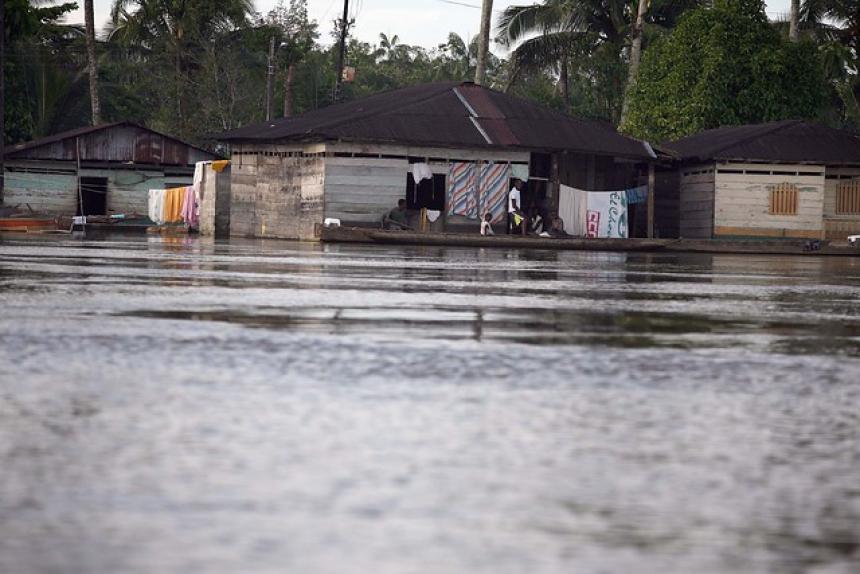Original source: https://www.elheraldo.co/colombia/por-primera-vez-se-le-da-un-lugar-los-derechos-de-la-naturaleza-355779
In Colombia, it is the first time that rights are granted to a river, to resources as such, beyond people and communities.
As a historical landmark, Ximena González described the ruling of the Constitutional Court that declared for the first time that a river “is subject of rights” and ordered the protection and immediate conservation of the Atrato River, its basin and tributaries, run by the State.
González is the spokeswoman for the Center for Studies for Social Justice Tierra Digna, who presented the guardianship that motivated the historic pronouncement, representing the Greater Community Council of the Popular Peasant Organization of Alto Atrato, the Greater Community Council of the Peasant Integral Association Atrato, the Association of Community Councils of Bajo Atrato, among others.
“It is a very important, historical ruling for Colombia, because for the first time it gives a place to the rights of nature. In Colombia, it is the first time that rights are given to a river, to resources as such, beyond people and communities,” she said.
González explained that the Constitutional Court declared that the Atrato river is vital for the communities, reason why the State must intervene to recover it, in well-being of the chocoanos.
“What the Court does is an experiment to give rights to this river for the first time. He ordered that a commission of the Atrato River Guardians be formed, composed of people from the communities and the National Government. He ordered that a Committee of Experts be created to advise those guardians of the river, with the idea of generating a comprehensive intervention plan to recover and protect Atrato,” she explained.
The lawyer explained that the guardianship was filed on behalf of several community councils in the Chocó because the Atrato river, as the third most important in the country, was being affected by various situations of gold extraction illegally and by the State’s failure to provide To citizens of the area with basic services.
“Communities live on the river, their daily lives, to consume food, to bathe, require the river. So all the polluting effects of these extractive activities were having a worrisome effect on the health of the population, in the environment, presence of mercury with the consequences that this implies. The river was being destroyed,” Gonzalez explained.
The lawyer said that the Center for Studies expects a structural measure, after so many years of forgetfulness, so that the determination is in accordance with their interests. Nevertheless, they consider the judgment as a beginning of the work that is to be done in favor of the river Atrato.
“Colombia is tired of so many paper failures that do not transform reality. For us it is clear that the ruling is a beginning in achieving the materiality of these rights. We have to do a great job, we need resources so that this can materialize in real programs,” she explained.
The ruling ordered not only a frontal attack on illegal mining, but also halted the use of toxic substances for the extraction of minerals, both legally and illegally. About the pollution produced by mercury, Gonzalez explained that when it comes into contact with water it becomes methylmercury that “is even more toxic.”
“The mercury that is in the water the fish consume it and will end the humans. We are facing a huge public health problem. On the other hand, all that river with large amounts of toxic substances flows into the Caribbean Sea and from there with effects that we do not know. The fact that the Court established measures on mercury was more than necessary,” she added.
The court ruled that the Atrato River is subject to rights that imply its protection, conservation, maintenance and restoration of the river itself and ordered that the National Government should exercise the legal guardianship and representation of the rights of the tributary : “The Court will order the National Government to exercise legal guardianship and representation of the rights of the river (through the Institution designated by the President of the Republic, which may well be the Ministry of the Environment) together with the ethnic communities that Inhabit in the catchment of the river Atrato in Chocó.”

